Company Cyber Security Posture
NANA
NA Company Details
NA
NA
NA
NA
NA
NA
Scan still pending
NA
NA
Between 200 and 800
This score is AI-generated and less favored by cyber insurers, who prefer the TPRM score.
 NA Global Score
NA Global Score.png)

Company Scoring based on AI Models
| Model Name | Date | Description | Current Score Difference | Score |
|---|---|---|---|---|
| AVERAGE-Industry | 03-12-2025 | This score represents the average cybersecurity rating of companies already scanned within the same industry. It provides a benchmark to compare an individual company's security posture against its industry peers. | N/A | Between 200 and 800 |
Company Cyber Security News & History
| Entity | Type | Severity | Impact | Seen | Url ID | Details | View |
|---|
Company Subsidiaries

NA
Access Data Using Our API

Get company history
.png)
NA Cyber Security News
Hack Attack
This Monday, the City of Santa Fe lost $324,000 to a cybersecurity breach when attempting to electronically pay GM Emulsion—one of the ...
Five Hackers Behind Notorious Data Selling Platform BreachForums Arrested
French authorities have dismantled a major cybercrime operation, arresting five hackers who operated BreachForum, one of the world's largest ...
SFR’s Potential Sale: A Catalyst for Telecom Consolidation in Europe—Regulatory Risks and Investment Opportunities
The SFR sale is a catalyst for Europe's telecom reshuffle. Investors should: 1. Go Long on Orange or STC if regulatory risks ease. 2. Buy dips ...
France’s Free Cyberattack Exposes User Data
Free, France's second-largest internet service provider, confirmed it was hacked this weekend. The Paris-based company, which serves over 22.9 million ...
SFR Business Expands 5G to All Enterprise Mobile Plans
SFR Business has announced that it is integrating 5G into all its mobile plans. This makes it the only B2B operator in France to offer a range of mobile ...
Free, France’s second-largest telecoms company, confirms being hit by cyberattack
Free, France's second-largest telecoms company, confirms being hit by cyberattack. Free, the second-largest internet service provider in France, ...
Hacker claims to have data linked to 19 million French mobile and internet customers
“Today, I'm selling the database of the French-based ISP “Free SAS”. The data breach affects 19.2 million customers and contains over 5.11 ...
Over 90 million French records exposed: mysterious data hoarder leaves instances open
The compromised phone numbers, email addresses, and partial payment information leave French citizens vulnerable to targeted cyberattacks.
Alleged SFR Data Breach: Millions Of Users Potentially Exposed
Hacker claims SFR data breach. The threat actor is allegedly selling data of 1.4 million SFR customers on dark web. SFR is yet to respond.

NA Similar Companies
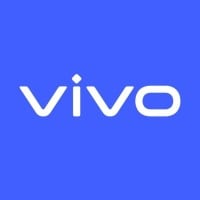
vivo
vivo is a technology company that creates great products based on a design-driven value, with smart devices and intelligent services as its core. The company aims to build a bridge between humans and the digital world. Through unique creativity, vivo provides users with an increasingly convenient mo
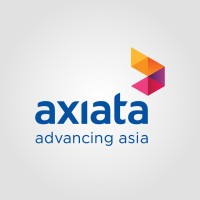
Axiata
AXIATA GROUP BERHAD 242188-H (199201010685) In pursuit of its vision to be The Next Generation Digital Champion, Axiata is a diversified telecommunications and digital conglomerate operating Digital Telcos, Digital Businesses and Infrastructure businesses across a footprint spanning ASEAN and Sout
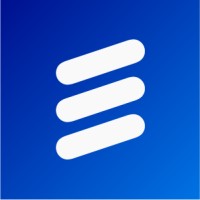
Ericsson
Our purpose To create connections that make the unimaginable possible. Our vision A world where limitless connectivity improves lives, redefines business and pioneers a sustainable future. Our values Perseverance, professionalism, respect and integrity. The future is a place for purpose & vision
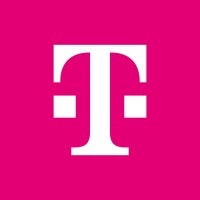
Deutsche Telekom
Welcome to Deutsche Telekom. As one of the world's most valuable brands, we design innovative solutions and products in the areas of connectivity, networks, digitalization and security. #connectingyourworld At Deutsche Telekom, we believe that each and every one of us has the power to move society
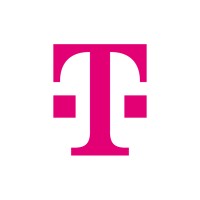
T-Mobile
T-Mobile US, Inc. (NASDAQ: TMUS) is America’s supercharged Un-carrier, delivering an advanced 4G LTE and transformative nationwide 5G network that will offer reliable connectivity for all. T-Mobile’s customers benefit from its unmatched combination of value and quality, unwavering obsession with off

PT. Indosat Tbk
Indosat Ooredoo Hutchison (IDX: ISAT) ("IOH"), are here with our vision to become the most preferred digital telecommunications company of Indonesia. The IOH merger combines two highly complementary businesses between PT Indosat Tbk (“Indosat Ooredoo”) and PT Hutchison 3 Indonesia to create a new wo

Frequently Asked Questions
Explore insights on cybersecurity incidents, risk posture, and Rankiteo's assessments.
NA CyberSecurity History Information
How many cyber incidents has NA faced?
Total Incidents: According to Rankiteo, NA has faced 0 incidents in the past.
What types of cybersecurity incidents have occurred at NA?
Incident Types: The types of cybersecurity incidents that have occurred include .
Additional Questions
What Do We Measure?
















Every week, Rankiteo analyzes billions of signals to give organizations a sharper, faster view of emerging risks. With deeper, more actionable intelligence at their fingertips, security teams can outpace threat actors, respond instantly to Zero-Day attacks, and dramatically shrink their risk exposure window.
These are some of the factors we use to calculate the overall score:
Identify exposed access points, detect misconfigured SSL certificates, and uncover vulnerabilities across the network infrastructure.
Gain visibility into the software components used within an organization to detect vulnerabilities, manage risk, and ensure supply chain security.
Monitor and manage all IT assets and their configurations to ensure accurate, real-time visibility across the company's technology environment.
Leverage real-time insights on active threats, malware campaigns, and emerging vulnerabilities to proactively defend against evolving cyberattacks.




